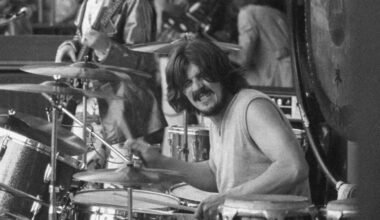When it comes to classic rock, choosing between The Beatles and The Rolling Stones feels like the ultimate music dilemma. These two giants of British rock have shaped popular music and culture, each representing distinct sounds, styles, and identities. For fans, the divide often runs deep. But for Stones guitarist Keith Richards, the distinction between them boils down to one key factor.
The Beatles vs. Stones debate shares similarities with the Oasis vs. Blur rivalry. The Beatles, hailing from working-class Liverpool, crafted songs deeply inspired by their backgrounds. The Stones, on the other hand, formed in London, where they took their cues from American blues legends, adding a gritty, rebellious edge that set them apart. While fans in the 1960s often sided with one or the other based on class, geography, or style, Richards argues that the bands differed most fundamentally in their musical identities.
“Everyone in The Beatles could sing,” Richards told Louder Sound, pointing out a key distinction he saw between the bands. Even Ringo Starr, known more for drumming than vocals, took on solo material after the Beatles split, with each member trying his hand as a frontman.
The Stones, by contrast, had one singular frontman from day one: Mick Jagger. Richards described his band as “a music band” with a traditional setup, where everyone stuck to their roles and followed Jagger’s lead as the face of the group.
The Stones’ identity revolved around being a cohesive unit, each musician playing an individual part to serve the song, unlike The Beatles, who swapped roles and often shared the spotlight. Richards suggested that this dynamic helped the Stones avoid the internal rivalries over leads and vocals that complicated The Beatles’ creative process. In his view, the Stones had an unspoken agreement to focus on the music rather than compete for attention.
Interestingly, Richards himself dabbled as a frontman outside of the Stones with his side project, The X-Pensive Winos, and various solo ventures. However, stepping out of his rhythm guitar role only deepened his appreciation for Jagger’s place in the band. “I learned a lot about being a frontman,” Richards admitted, adding that his solo experience gave him a new respect for Jagger’s work on stage. “It widened my perspective of what everybody has to do in a band.”
This insight, Richards feels, is something the Beatles might have missed. Their decision to go solo, each taking on the role of frontman, set them on very different paths and highlighted, in his mind, the core difference between the two groups. “The Beatles were a band of singers,” he said, while the Stones were just a band – with one iconic voice at the helm.
Despite Richards’ opinion, both bands made their way into rock history, and supergroup moments where members crossed paths showed they all shared a respect for each other’s work. But in Richards’ eyes, this singular vision of “one frontman, one band” is what kept the Stones grounded as a lasting force in rock.







